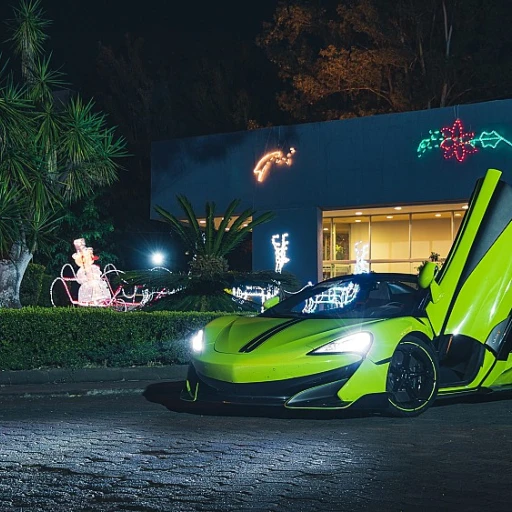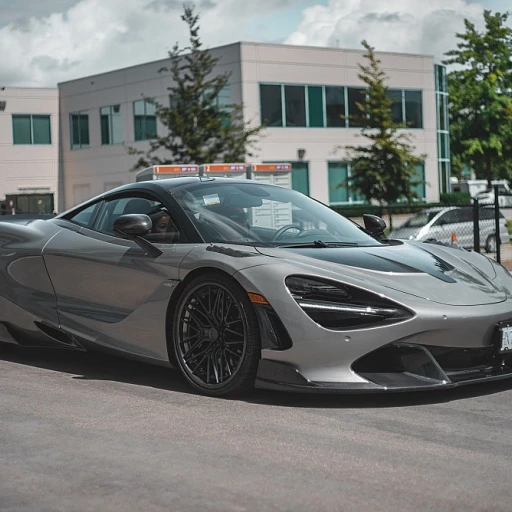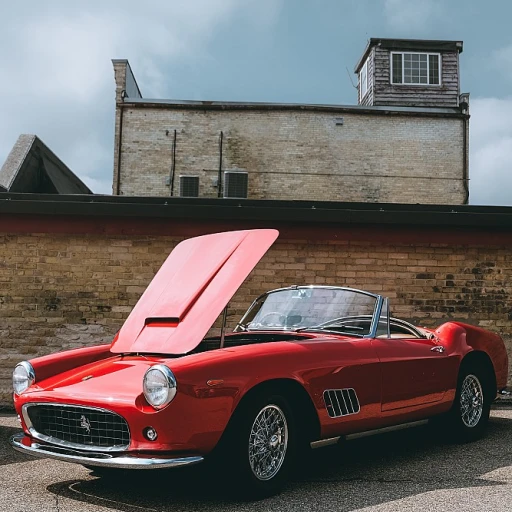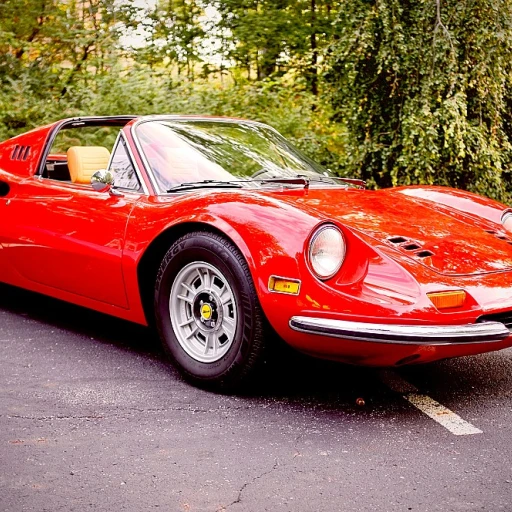The history and evolution of european luxury cars
Early pioneers and their innovations
European luxury cars have a rich history, beginning with early automotive pioneers like Karl Benz, whose Benz Patent-Motorwagen is widely regarded as the first true automobile. This vehicle, invented in 1886, set the stage for the future of luxury cars.
In 1901, Mercedes, a product of Daimler-Motoren-Gesellschaft, was introduced, which featured innovations such as the first honeycomb radiator and an engine set at a 45-degree angle, improving vehicle balance and stability.
Other early innovators included Rolls-Royce, which launched its 40/50 model in 1906, known as the Silver Ghost. Dubbed "the best car in the world," this model established Rolls-Royce's reputation for superior engineering and luxury.
The roaring twenties and luxury advancements
The 1920s and 1930s saw significant advancements in luxury features and performance. Bentley Motors, formed in 1919, quickly gained fame with its 3 Litre, a car that won the 24 Hours of Le Mans in 1924. Meanwhile, Alfa Romeo, with its sporty models, became synonymous with opulence and speed.
Bugatti also emerged as a key player, with the Type 35 leading the pack. This particular model became one of the most successful racing cars of its era, further cementing Europe's growing prominence in luxury and performance vehicles.
Post-war growth and the establishment of icons
After World War II, Europe experienced a resurgence in luxury automotive production. BMW and Mercedes-Benz solidified their status as luxury leaders with iconic models like the BMW 507 and Mercedes 300SL, famous for its distinctive gullwing doors.
During the same period, Ferrari and Lamborghini entered the scene, making waves with their high-performance sports cars. Ferrari's 250 GTO and Lamborghini's Miura were not only known for their speed but also for their striking designs, which became hallmarks of luxury and exclusivity.
Modern innovations and technological advancements
Today, European luxury cars remain at the forefront of automotive innovation. Brands like Audi, featuring their Quattro all-wheel-drive system, and Porsche with the launch of the revolutionary 911, continue pushing the boundaries of what luxury and performance mean.
Moreover, manufacturers are increasingly integrating advanced technologies such as adaptive air suspension, electronic stability control (ESP), and TCS (traction control system), transforming the driving experience. These features highlight the blend of performance, comfort, and technological sophistication that defines modern European luxury cars.
If you want a detailed analysis of some of the finest 2024 luxury cars, check out this exploring the finest 2024 luxury cars.
Top european luxury car brands: BMW, Mercedes-Benz, and more
BMW: the epitome of German engineering
BMW, a name synonymous with luxury, precision, and performance, has enthralled car aficionados for decades. The German automaker, established in 1916, quickly solidified its reputation as a paragon of engineering excellence. The prestigious BMW Series boasts a diverse range of models, from the family-friendly 3 Series to the executive 7 Series.
According to a Statista report, BMW manufactured over 2.3 million vehicles in 2021, with the BMW 3 Series claimed as the best-selling in its category. In the luxury SUV market, the BMW X5 and X7 again underscore the brand's versatility, offering a harmonious blend of power and luxury.
Mercedes-Benz: a legacy of sophistication
Mercedes-Benz, another giant in the luxury car segment, has its roots traced back to Karl Benz’s first petrol-powered car – a history that stretches over 135 years. Renowned for its elegant aesthetics and breakthrough technologies, Mercedes-Benz, the creator of the iconic Mercedes-AMG lineup, continues to set benchmarks for style and innovation.
In a 2021 Fortune Global 500 report, Mercedes-Benz was perched at the 33rd position, illustrating its dominance in the global luxury car market. The brand is celebrated for its S-Class series, which includes features like TCS (Traction Control System) and Adjust Air Suspension, embodying luxury and cutting-edge technology.
Porsche: melding speed with luxury
Porsche, the German automaker revered for its high-performance sports cars and sedans, has consistently thrilled the automotive market. With models like the iconic 911 and the high-performing Cayenne SUV, Porsche bridges the gap between sheer speed and opulent comfort.
A notable mention from the J.D. Power 2021 Resale Value Awards cited the Porsche 911 as one of the top vehicles retaining its value over time, reflecting the brand's lasting appeal and robust engineering.
Ferrari: a symbol of opulence and performance
Ferrari, often considered the jewel in the crown of Italian automakers, represents the pinnacle of European supercars. The prancing horse brand combines luxurious interiors with blistering performance. Notably, the Ferrari Spider, an epitome of open-top excellence, offers a thrilling driving experience.
An analysis by Statista on Ferrari sales shows an impressive growth trajectory, with over 10,000 units sold in 2019, further cementing Ferrari's unparalleled allure.
Lamborghini: unrivaled luxury and speed
Lamborghini, another venerable name in the supercar segment, traces its roots to the quaint Italian town of Sant'Agata Bolognese. The Lamborghini Huracan has become a household name for performance enthusiasts, offering breathtaking acceleration and a transcendent driving experience.
The luxurious Lamborghini Urus SUV has also made waves, reflecting a fusion between unparalleled speed and family-friendly features. According to a Car and Driver report from 2020, the Urus was instrumental in the company's record sales of 8,205 units in 2019.
Range Rover: redefining luxury SUVs
Range Rover, a name synonymous with opulence and robustness, has been at the forefront of the luxury SUV revolution. Its models, like the Range Rover Sport and Range Rover Evoque, offer a perfect amalgamation of ruggedness and refinement, appealing to both adventure-seekers and the luxury-conscious.
The Range Rover Evoque, with cutting-edge features such as drone mode and night vision assist, offers an elevated driving experience. As per a report by BBC, the SUV market has surged by 54% since 2010, and brands like Range Rover are riding this wave with aplomb.
The rise of luxury SUVs: Range Rover, Mercedes-Benz G-Class, and more
The unstoppable growth of luxury SUVs
In recent years, luxury SUVs have risen to prominence, reshaping the image of the traditional European luxury cars we once knew. From the streets of Marbella to the boulevards of Monaco, these vehicles have become a symbol of both status and sophistication.
Why luxury SUVs are gaining popularity?
Luxury SUVs combine the elegance and performance of a sedan with the practical advantages of an off-road vehicle. This hybrid capability makes them an attractive offer for a diverse range of buyers. In fact, the surge in their popularity can be largely attributed to their versatility and the well-rounded utility they offer.
Key players in the SUV market
Range Rover: Dominating the scene, the Range Rover line-up is synonymous with luxury SUVs. From the Range Rover Sport to the Range Rover Evoque, these models are tailored to meet the desires of luxury enthusiasts and off-road aficionados alike.
Mercedes-Benz G-Class: Known for its robust build and luxurious interior, the Mercedes-Benz G-Class, particularly the G-Wagon, has garnered a cult following. It's not uncommon to see celebrities and influencers showcasing their G-Wagons, further cementing its status.
Adoption of advanced features
Modern luxury SUVs are packed with advanced technology like TCS, adjustable air suspension, and ESP. Mercedes-Benz, for example, offers features like 'Drone Mode' which ensures a smooth ride on various terrains.
Case studies and real-world examples
Consider the story of the Lamborghini Urus - seamlessly blending the luxury and performance of a supercar with the versatility of an SUV. Since its introduction, it has set a new benchmark in the luxury SUV segment.
The experience of renting a luxury SUV in Europe
For those traveling across Europe, renting a luxury SUV offers a seamless way to combine comfort, style, and practicality. From exploring the rugged landscapes of Spain to cruising through Zurich's sleek city streets, luxury car rental services make it easy to get behind the wheel of these magnificent machines.
The trends shaping the future of luxury SUVs
As the demand for luxury SUVs continues to soar, manufacturers are increasingly focusing on electric and hybrid models to keep up with the evolving market. The introduction of models like the Porsche Cayenne E-Hybrid is a testament to this shift.
For more insights on how luxury supercars are redefining the automotive industry, check out this article.
European supercars: Ferrari, Lamborghini, and beyond
Ferrari: the timeless superstar
Ferrari continues to be a hallmark in the world of european luxury cars, renowned for its rich heritage and unparalleled performance. Designed for those who crave the thrill of speed and elegance, models such as the Ferrari 488 and Ferrari Spider have captured the imaginations of enthusiasts globally. The Ferrari 488, for instance, is powered by a 3.9-liter twin-turbo V8, delivering a stunning 661 horsepower. According to Ferrari's official data, this supercar rockets from 0 to 62 mph in just 3 seconds, reflecting the brand's commitment to marrying power with luxury (Ferrari, official site).Lamborghini: the wild child
Lamborghini, known for pushing boundaries and daring designs, remains unrivaled when it comes to sheer dramatic flair. The Lamborghini Huracan exemplifies this with its striking looks and performance. Sporting a naturally aspirated 5.2-liter V10 engine, the Huracan delivers 630 horsepower, hitting 60 mph in just 2.9 seconds (Lamborghini, official site). Lamborghini's ability to combine audacious aesthetics with raw power has solidified its status as a mainstay in the supercar domain.Porsche: precision and power
Porsche strikes a perfect balance between performance and daily usability. The Porsche 911 series, particularly the 911 Turbo S, is a testimony to this balance. The Turbo S features a 3.8-liter twin-turbo flat-six engine, generating 640 horsepower. According to Car and Driver, it can achieve 0-60 mph in a swift 2.6 seconds, making it one of the fastest cars in its league. Porsche's meticulous attention to engineering ensures that luxury is never compromised for performance (Car and Driver, 2020).Aston Martin: sophistication and speed
Aston Martin, often celebrated for its blend of British elegance and high performance, continues to captivate with models like the DB11 and the Vantage. The DB11’s 5.2-liter twin-turbo V12 engine generates 630 horsepower, ensuring impressive acceleration and stunning top speeds. With the Vantage offering a 4.0-liter twin-turbo V8 churning out 503 horsepower, Aston Martin's supercars deliver not just on the track but also in terms of luxurious detail and refinement (Aston Martin, official site). For more insights into Aston Martin's evolution in the luxury car circuit, visit Unfolding the British Legend.McLaren: the engineering marvel
McLaren’s approach to supercars is rooted in their Formula 1 heritage, focusing heavily on innovative technology and high performance. The McLaren 720S, with its 4.0-liter twin-turbo V8 engine producing 710 horsepower, is a prime example. It leaps from 0 to 60 mph in a mere 2.7 seconds. Autocar's review highlights McLaren's dedication to precision engineering and lightweight construction, making it not just fast but exceptionally nimble around corners (Autocar, 2021).Bugatti: the epitome of power
No discussion about european luxury cars is complete without mentioning Bugatti. The Bugatti Chiron, boasting a quad-turbocharged 8.0-liter W16 engine, delivers a mind-boggling 1479 horsepower. Bugatti states that the Chiron can reach 60 mph in under 2.5 seconds and has a top speed limited to 261 mph for safety reasons. This supercar exemplifies the pinnacle of automotive engineering and luxury (Bugatti, official site).Koenigsegg: innovation at its best
Lastly, Koenigsegg, although a relatively young brand, has made significant strides in the supercar sector. The Koenigsegg Jesko is powered by a 5.0-liter twin-turbo V8 engine that produces up to 1600 horsepower on E85 biofuel. According to Top Gear, the Jesko achieves 0-60 mph in around 2.5 seconds, showcasing the brand's commitment to pushing the limits of speed and technology (Top Gear, 2022).Luxury car rental in Europe: experiences and trends
The experience of renting luxury cars in Europe
Planning a trip through Europe and considering how to elevate your journey? Renting a luxury car can turn a memorable trip into an unforgettable adventure. Whether cruising along the French Riviera in a Ferrari Spider or navigating the narrow streets of Rome in a sleek BMW, the experience is unparalleled.
Luxury car rentals in Europe are growing in popularity, capturing the imaginations of travelers looking to merge style, comfort, and performance. The most sought-after brands include BMW, Mercedes-Benz, Lamborghini, and Ferrari. Services often offer flexible rental options ranging from a single day to several weeks, making it easy for various types of travelers to indulge in this luxury.
Popular rental hotspots
Several locations across Europe are known for their bustling luxury car rental markets. Marbella, Monaco, and Geneva are top spots where luxury cars are a common sight. Imagine parking a Porsche on the promenade of Marbella or driving a Lamborghini Huracan along the winding roads of the Côte d'Azur. These cities provide the perfect backdrop to elevate your travel experience.
Trends in luxury car rentals
One growing trend is the preference for luxury SUVs. Vehicles like the Range Rover and Mercedes-Benz G-Class offer a blend of space, comfort, and rugged elegance that appeal to families and adventurous travelers alike. The versatility of these SUVs is rarely matched, allowing them to traverse urban landscapes and rural backroads effortlessly.
In addition to SUVs, the demand for electric and hybrid luxury cars is on the rise, compelled by growing environmental awareness and stricter emission regulations. Brands like Tesla and BMW are at the forefront of this shift, offering electric alternatives that combine sustainability with luxury.
Renting tips and what to expect
When you rent a luxury car in Europe, be prepared for premium prices that reflect the high standard of service and the quality of the vehicles. Costs can range significantly; renting a Ferrari or Rolls Royce could cost around €1,000 or more per day, depending on the model and location. To get the best deal, book in advance and consider the rental duration; extended rentals often come with discounted rates.
For the ultimate experience, consider opting for additional features like GPS navigation, driver services, or insurance packages that cover all contingencies. Companies like DMNK Studio and other well-known rental services offer a seamless experience from booking to drop-off.
Personal stories and client feedback
Sarah, a traveler from London, recounts, “Renting a Range Rover Sport to explore Tuscany was the highlight of our trip. The car's performance was impeccable, and the luxurious interior added a touch of elegance to our vineyard tours.”
Similarly, a group of friends on a summer holiday in Spain shared their experience of renting a Ferrari for a day. “Driving along the coast of Marbella in a Ferrari was a dream come true. The roar of the engine, the looks of admiration – it was worth every penny!”
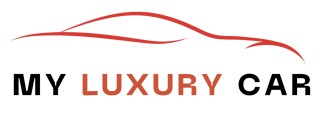
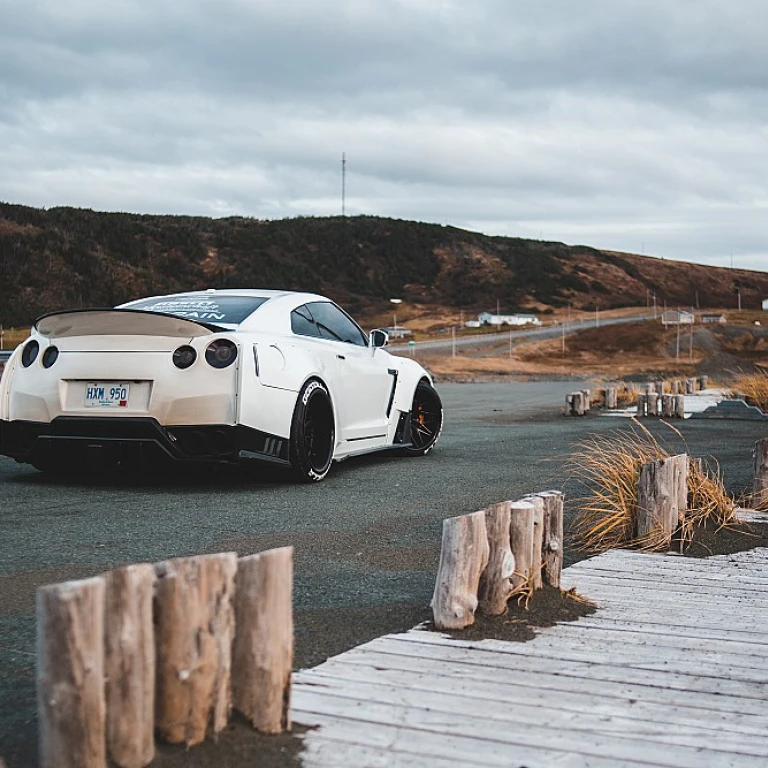
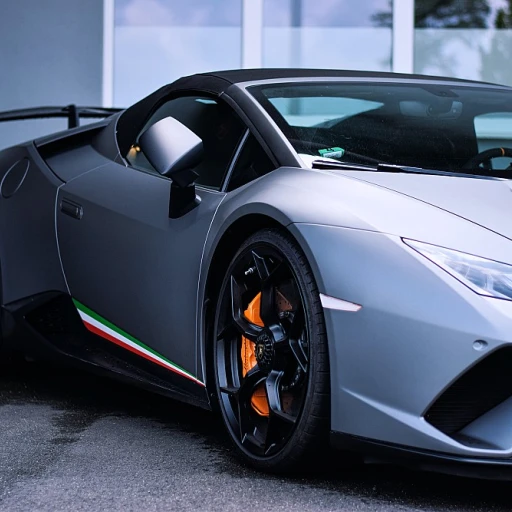
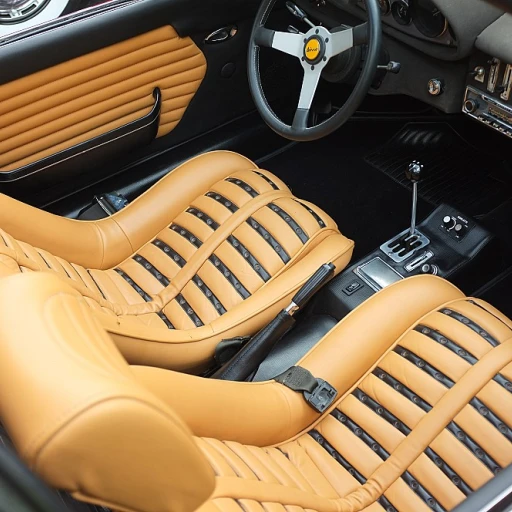
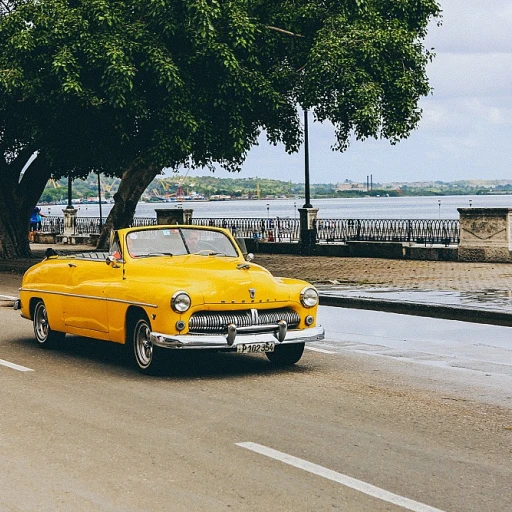
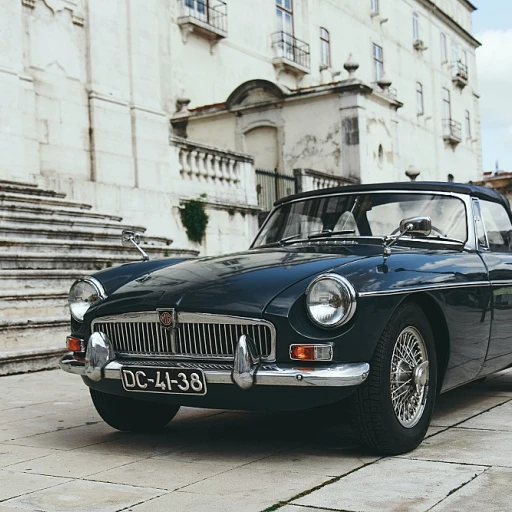
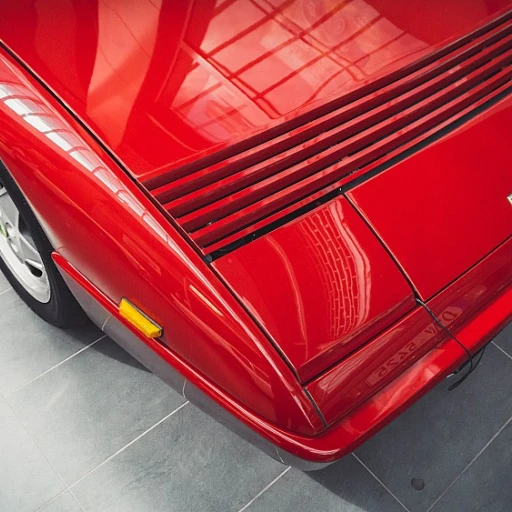
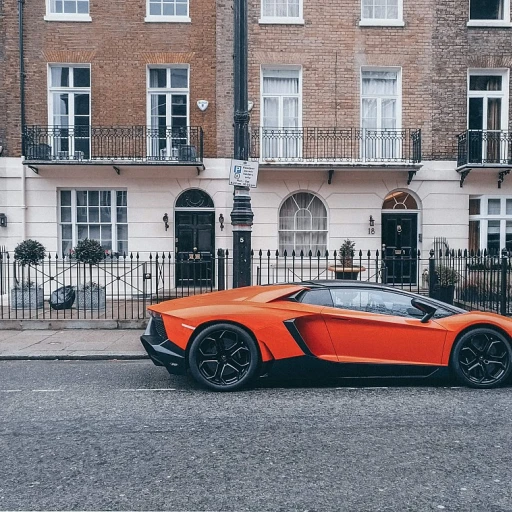
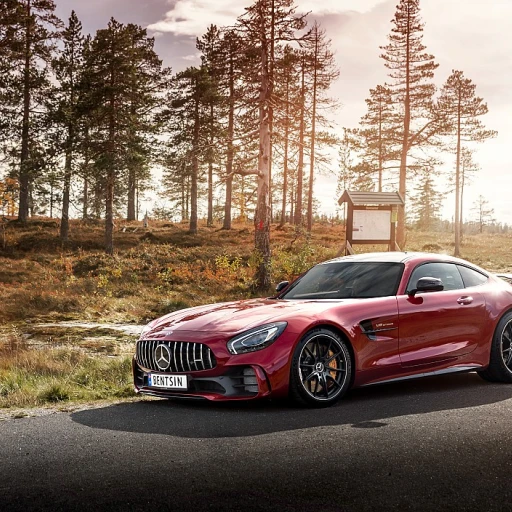
-large-teaser.webp)
